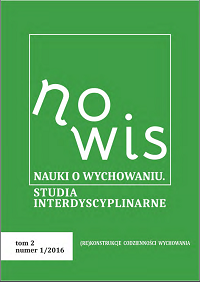Culture rurale et mode de formation: témoignage
Rural Culture and Education – Description of Performed Activities
Author(s): Pedro Puig-Calvó, Jean-Louis IchardSubject(s): Education, Sociology
Published by: Wydawnictwo Uniwersytetu Łódzkiego
Keywords: development of rural areas; action/education; See/Assess/Act; leader; commitment and responsibility; Christianity and development; integrated education
Summary/Abstract: Rural environment, due to its specific characteristics, requires an adjustment of the pedagogical approach in education. This environment is characterized by: 1) life at work, family life, social life, life in leisure time, all focused and running according to the rhythm of the profession; 2) attaching no importance to discussions and speeches – facts and deeds are of the greatest importance; 3) relative difficulty in articulating and sharing thoughts; 4) possible inferiority complex towards the people of the city; 5) professed prejudgments can lead to doubts about the right to education and development; 6) established belief that one should not change habits; 7) lack of trust in the novelty and the unknown; 8) mentality inducing the situation when innovations are introduced by influential people or leaders; 9) independence of character and activity; 10) importance of cultural transmission; 11) and predominance of the oral tradition over the written one. Some countries have successfully adapted education to the reality of rural life. Others are trying to do so, also being quite successful in that. “Despite different cultures, all peasants react in the same way!” (Blois, interview).
Journal: Nauki o Wychowaniu. Studia Interdyscyplinarne
- Issue Year: 3/2016
- Issue No: 2
- Page Range: 161-179
- Page Count: 19
- Language: French

